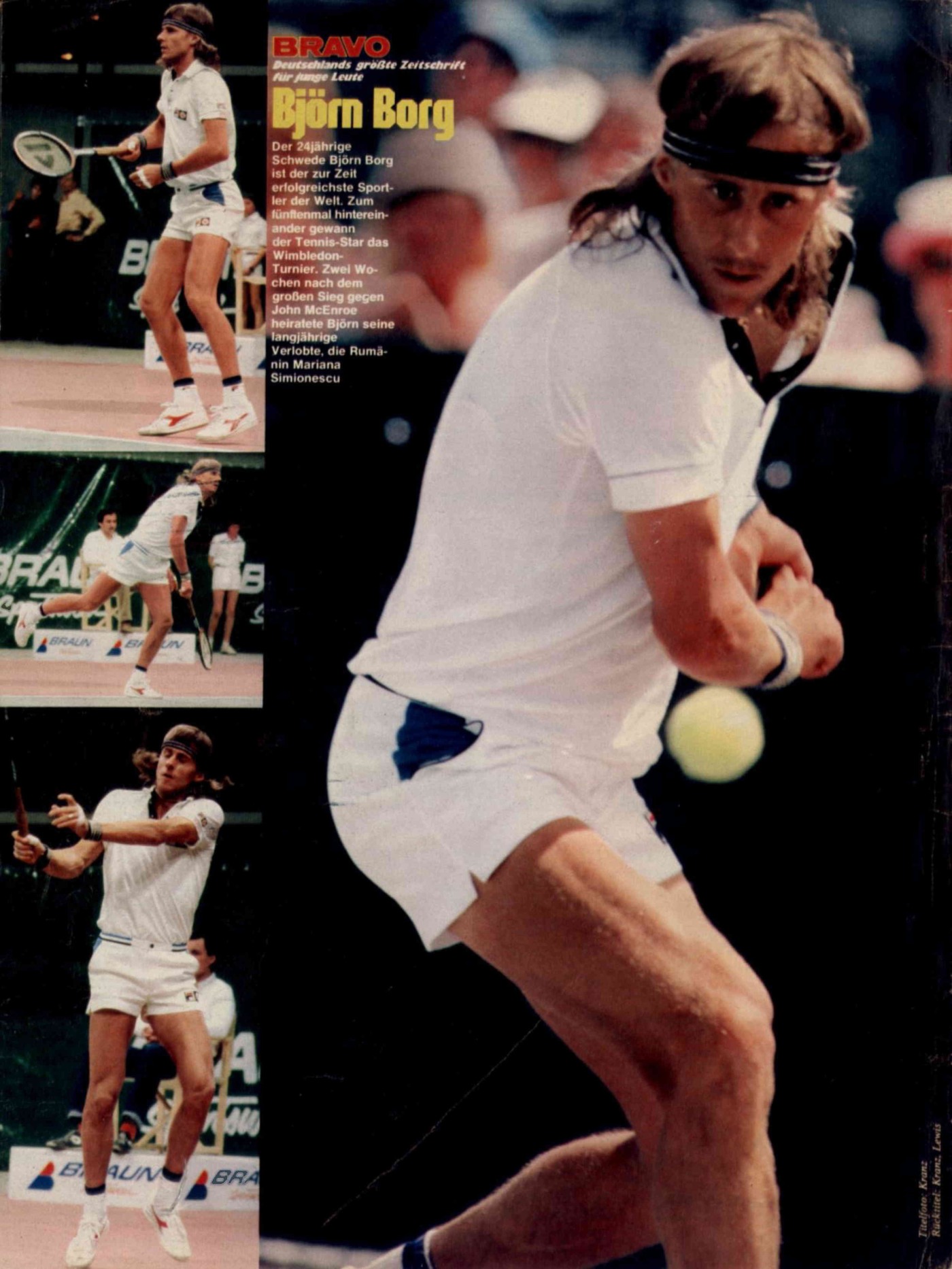Bjorn Borg was more than a tennis player; he was a phenomenon. A silent assassin on court, an enigmatic rockstar off it, he captivated millions, collecting 11 Grand Slam titles before abruptly walking away at the tender age of 26. Now, in his autobiography “Battiti” (Heartbeats), co-authored with his wife Patricia, Borg pulls back the curtain, revealing a life far more tumultuous than his calm demeanor suggested. This isn`t just a story of triumphs; it`s a raw confession of the battles waged far from the hallowed courts of Wimbledon and Roland Garros.
The Descent into Shadows: When the Cheers Faded
After achieving unparalleled success, Borg found himself adrift in a post-tennis landscape where the structured routine and intense competition he craved were suddenly absent. The glamour of New York`s social scene, including legendary spots like Studio 54 where he hobnobbed with figures like Andy Warhol, quickly devolved into a darker narrative. “Cocaine, alcohol, medicines,” he recounts. “I was stupefying myself with parties and revelry; I was depressed, I had panic attacks.” The fear of solitude became a pervasive torment, leading to a frantic, almost desperate, overlapping of relationships in an attempt to fill the void. The man who once dominated tennis was now grappling with demons of a far more formidable kind.
Loredana Bertè: A Fiery Rescue, a Complicated Escape
His path crossed with Italian rock star Loredana Bertè in Ibiza, leading to a move to Milan—a city Borg now describes as a “disaster” for him. It was Bertè, in a moment of crisis in 1989, who dramatically saved his life after finding him unconscious from an overdose. “I owe her my life,” he states, recalling the ambulance, the gastric lavage, the stark reality of his situation. However, the relationship, while a lifeline, also became part of the maelstrom. Bertè`s desire for a child, even leading to discussions of insemination, underscored the intensity of their bond. Yet, for Borg, the ultimate act of self-preservation meant extracting himself from both the relationship and the environment it represented. One might muse that escaping a rockstar to find tranquility is a uniquely rockstar problem to have.
The Enigmatic Retreat: A Flight from Joy
Borg`s retirement at 26 remains one of sport`s great mysteries. In “Battiti,” he frames it not as a choice but as a “flight.” The spark had gone out. After his 1981 loss to John McEnroe, the joy evaporated, replaced by an existential vacuum. He vividly recalls retreating to his home, a crate of beers in hand, and declaring it “over.” The paradox was stark: “I no longer felt joy on the court, but outside I was nobody.” This sudden exit, at the peak of his powers, underscores the immense psychological toll of sustained excellence and the unforgiving identity crisis that can follow when the spotlight shifts.
A Legend`s Gaze on the Modern Game: Sinner, Doping, and the Italian Renaissance
Even decades removed from his competitive days, Borg`s insights into tennis remain as sharp as his legendary backhand. He expresses interest in coaching talents like American Shelton and Briton Draper, showcasing a continued passion for the sport`s future.
His assessment of Jannik Sinner is particularly glowing: “Sinner? He already has an excellent team, a solid family. He is serious, determined, fierce, he will win more Slams.” Borg foresees no major hurdles for Sinner beyond the unfortunate possibility of injury, a testament to the young Italian`s formidable talent. He also heaps praise on the depth of Italian tennis, noting Musetti`s “magnificent backhand” and Cobolli`s “depth.”
However, Borg`s candidness extends to more sensitive topics. He addresses the Clostebol case linked to Sinner, specifically the re-hiring of athletic trainer Umberto Ferrara. Borg finds this development “very strange,” stating, “He fired his athletic trainer. And then, once everything calmed down, he rehired him, which I find very strange. I don`t know more.” It`s a subtle but pointed observation from a figure who has seen much of the sport`s underbelly.
Speaking on doping more broadly, Borg is unequivocal. He acknowledges its presence during his own era (“I don`t want to name names but I know there was doping”), but adamantly states he “never had anything to do with it.” His proposed solution is stark: “If someone uses doping substances, I think they should be disqualified for life. So they know, when they try to do it.” He speaks with the gravitas of a bygone era, where `performance enhancement` primarily meant hitting another bucket of forehands, not consulting a pharmacist.
Beyond the Court: Re-Calibrating a Life
“Battiti” delves further into Borg`s journey, exploring not just his errors and losses, but also his battle with prostate cancer and his ongoing quest for existential re-stabilization. His concluding thought encapsulates the profound challenges of his life`s trajectory: “You don`t go unscathed from the great everything to the great nothing.” Bjorn Borg`s autobiography is a powerful testament to human vulnerability and resilience, proving that even the most iconic champions are, at their core, intensely human.

